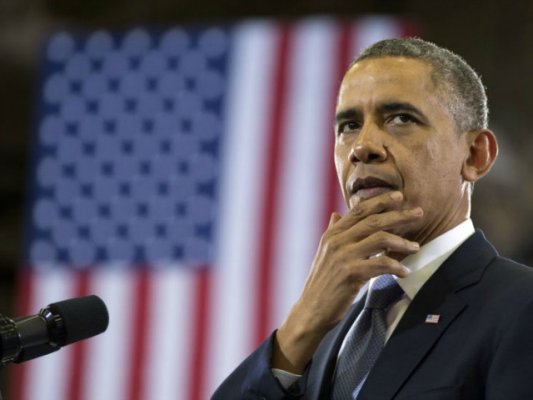
Louisiana: President Barack Obama may not be on Louisiana's Senate runoff ballot, but it's clear his widespread unpopularity in the state stands as Democratic Sen. Mary Landrieu's biggest hurdle to a fourth term.
Landrieu led an eight-candidate primary, but her 42 percent was only 16,000 votes ahead of Republican Rep. Bill Cassidy and far short of her 2008 totals when she won without a runoff. Exit polls explain the collapse: Landrieu got votes from 18 percent of whites, while nearly three out of four white voters said they strongly disapprove of the president.
“It's not so much a Mary thing as it is a Democrat thing and Obama thing,” said restaurant owner Dean Gehbauer of Thibodaux.
That makes Cassidy, a congressman from Baton Rouge, the favorite on Dec. 6. A Cassidy win would push Republicans' new Senate majority to 54 seats in January and complete the party's southern sweep of top statewide offices from the Carolinas westward to Texas.
Election returns offer little to suggest Gehbauer is wrong. In the last six years, Landrieu lost ground to Republicans in every Louisiana parish. In 2008, she defeated Republican John Kennedy by 121,111 votes statewide. This time, Cassidy and third-place finisher Rob Maness, an ultraconservative tea-party favorite who has since endorsed Cassidy, combined to lead Landrieu by 186,207 votes, a net swing of 307,318.
Thibodaux's surrounding parish—Lafourche—illuminates the shift as one of 12 parishes that Landrieu won in 2008 but lost on Nov. 4. She defeated Kennedy here by 265 votes, running about 8,000 votes ahead of Obama. This time, she trailed Cassidy by 3,277. Adding Maness's support, her deficit was 8,922.
Landrieu never has surpassed 52.1 percent statewide, and the 2014 midterms always promised difficulty. In the presidential elections of 1996 and 2008, she benefited from strong Democratic turnout, particularly among African-Americans, that typically wanes in midterm elections. She ran in the 2002 midterms as a moderate who worked with Republican President George W. Bush, who twice carried Louisiana.
But this year, for the first time, Landrieu faces a midterm electorate with the White House occupied by a Democrat who is widely unpopular in her state, a circumstance that led to defeats for Democratic incumbents in North Carolina, Arkansas and Alaska.
“This has been, first and foremost, a referendum on Barack Obama and then only secondarily on Mary Landrieu,” said Thibodaux attorney Matthew Block, one of Landrieu's financial backers. “After that, it was just a question of which Republican would catch fire.”
Like her vanquished colleagues, Landrieu has tried to distance herself from Obama. She touted her energy committee chairmanship as a boon to this oil-rich state and noted her role in increasing Louisiana's royalties from offshore exploration.
In mid-November, after Democrats' national thrashing in the Nov. 4 elections, Senate Majority Leader Harry Reid allowed floor debate on construction of the Keystone XL Pipeline, a symbolic proxy of the battle between the energy industry and environmental advocates. The procedural vote fell one shy of the 60 needed to allow a final vote. Instead of Landrieu affirming her influence, Republicans crowed that she's of little value with Obama and Reid in charge.
Landrieu still highlights her work securing federal aid after Hurricanes Katrina and Rita in 2005. That garnered endorsements from several local Republican leaders in 2008, but many of them are now mum. Similarly, the U.S. Chamber of Commerce abandoned Landrieu after endorsing her six years ago, though the powerful lobby stopped short of backing Cassidy.
The senator has focused her television advertising on Cassidy's support for Republican budgets that would curtail Social Security and Medicare benefits. Yet exit polls still show she claimed 36 percent among voters age 65 and older, and 41 percent among voters age 45-64. Landrieu managed 50 percent among 18- to 29-year-olds, but that group accounted for only an estimated 12 percent of the electorate.























